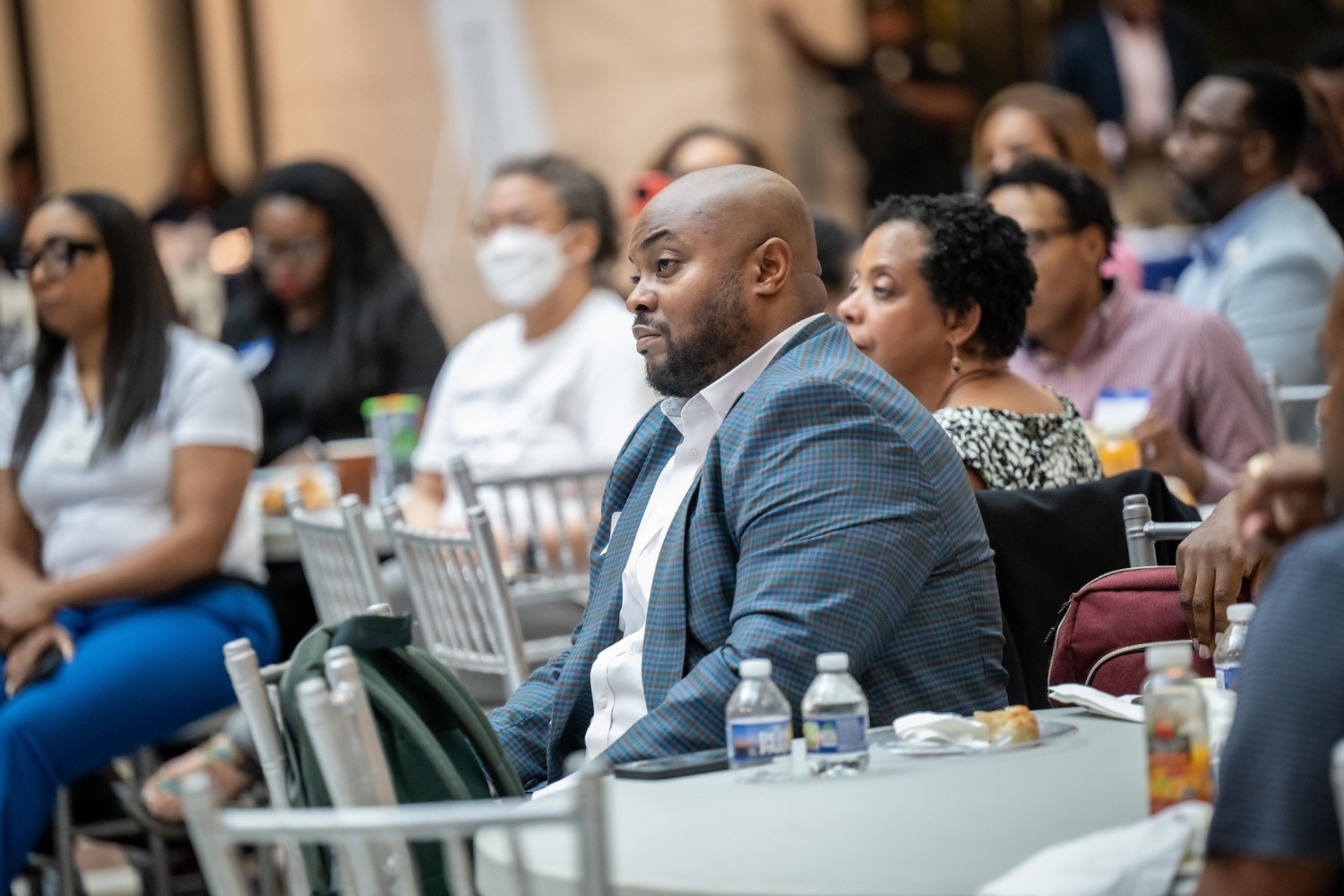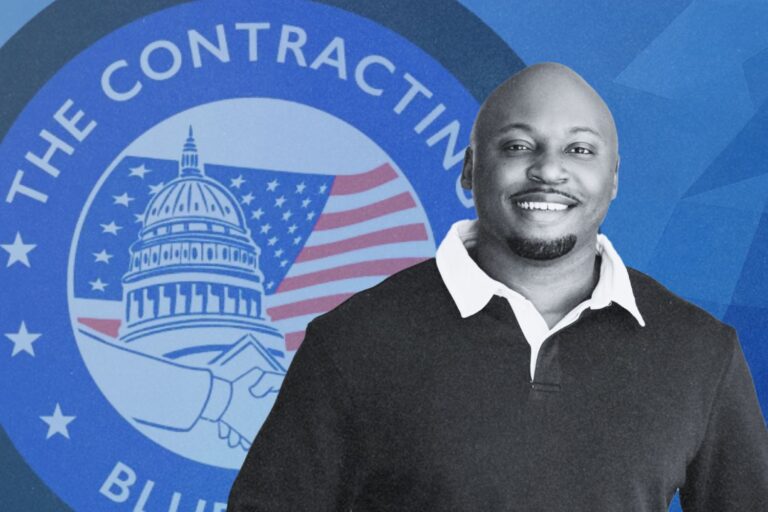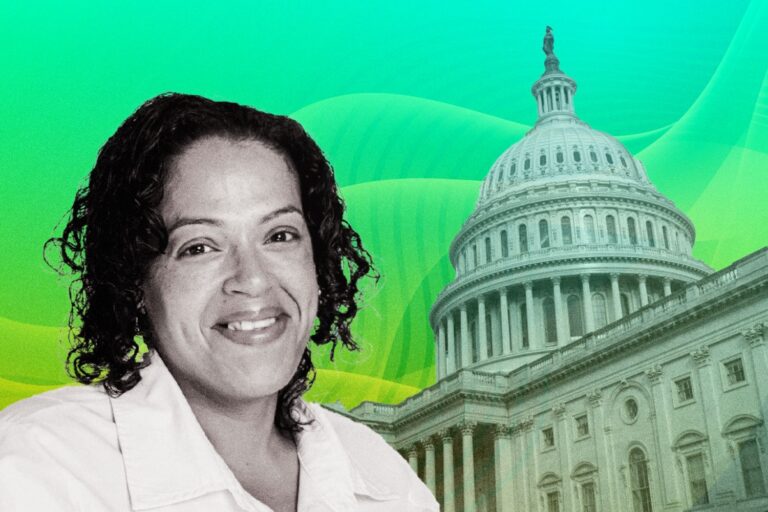Disparity Issue: Few Minority Businesses Awarded Government Contracts
The broader term of government contracts – government procurement, simply put, is the process by which public sector organizations acquire goods, services, and works from external suppliers.
Federal procurement spending remained high in fiscal year 2022, totaling about $630 billion. This increase was fueled by economic recovery initiatives, expanded government contracts in areas like research and development, and investments in renewable energy. State and local government spending also saw an uptick, reaching $2.4 trillion as they focused on rebuilding infrastructure and managing the public health crisis.
That’s a significant amount of money in this lucrative industry that many want to join. However, the attractiveness of this field has sparked scrutiny regarding disparities, as studies have shown that not all groups are adequately represented, particularly women and minorities.
Why are There Disparities in Government Contracts?
The persistent disparity in government contracts can be attributed to several factors, starting with the government’s preferred contractors.
Research by Benjamin Rosa, an assistant professor of business economics and public policy at U-M’s Ross School of Business, indicates that while there are efforts to create an equal opportunity for firms from disadvantaged backgrounds to compete for contracts, discrimination may still occur even among these groups.
Rosa’s study highlights that network access is crucial; government agencies and prime contractors tend to favor established firms. As a result, equally qualified but lesser-known disadvantaged firms may be overlooked, and affirmative action policies aimed at supporting these firms may not effectively address these disparities.
These businesses often lack the visibility and networks of larger, established firms, which makes it challenging for them to discover and access contract opportunities.
Next, we must examine the systemic racism present in procurement processes. For instance, a study conducted in 2024 found that New Jersey allocates hundreds of millions of dollars in government contracts each year, predominantly to companies owned by white men. We will explore this study in greater detail in the following sections.
Minority- and women-owned businesses also face significant challenges related to limited access to capital, which hinders their growth and competitiveness in the marketplace. These groups are disproportionately underrepresented in business ownership, particularly among employer businesses that have paid employees, indicating systemic barriers to financial resources.
According to data from the U.S. Commerce Department’s Minority Business Development Agency, minority-owned businesses are less likely to obtain funding compared to white-owned businesses, particularly those with gross receipts under $500,000.
Furthermore, for those minority-led businesses that do receive funding, the average interest rates are higher than those offered to their white-owned peers. This discrepancy arises from biased practices in many traditional banking institutions, which tend to view white-owned businesses as “less risky.”
A study by the National Community Reinvestment Coalition revealed that Black-owned businesses looking for small business loans through Covid-19 programs like the Paycheck Protection Program (PPP) experienced unequal treatment compared to white business owners.
The findings showed that lenders often discouraged Black entrepreneurs from applying for loans while encouraging white business owners to seek multiple loan options. This bias underscores the significant hurdles minorities face in securing financing. The initial rollout of PPP loans disproportionately excluded small and vulnerable businesses, benefiting larger firms instead.
The White House acknowledged that family-owned, women-owned, and minority-owned businesses found it difficult to access PPP due to excessive paperwork and flaws in the program, which exacerbated financing inequalities and marginalized individuals with delinquent student loans or noncitizens.
Businesses in rural areas also encounter similar difficulties in securing funding, further limiting their ability to scale and compete for federal contracts. While programs like the SBA’s 8(a) offer some support through contracting set-asides, many minority- and women-owned firms struggle to access capital outside of these initiatives.
Why do We Need Disparity Studies?
Disparity studies originated from the 1989 U.S. Supreme Court case, City of Richmond v. J. A. Croson Company. In 1983, Richmond required prime construction contractors to allocate 30% of their subcontracting funds to firms with at least 51% minority ownership. However, the Supreme Court struck down the ordinance, arguing that governments could not apply remedies without clear evidence of discrimination.
The program was deemed unconstitutional under the Equal Protection clause of the Fourteenth Amendment for granting opportunities based on race alone, without proof of specific discrimination, according to researchers Atkinson, McCue, and Saginor of Florida Atlantic University.
Disparity studies now aim to provide the legal basis for MWDBE initiatives. If evidence of disparity is found, recommendations are made to address inequities, such as reforming procurement processes, improving MWDBE networks, collecting more accurate data, and building accountability measures.
These studies could lead to significant changes, like new programs or funding for MWDBEs, but without implementation, disparities may persist, harming minority- and women-owned businesses.
Current State of Minority and Women Owned Businesses Being Under-Utilized
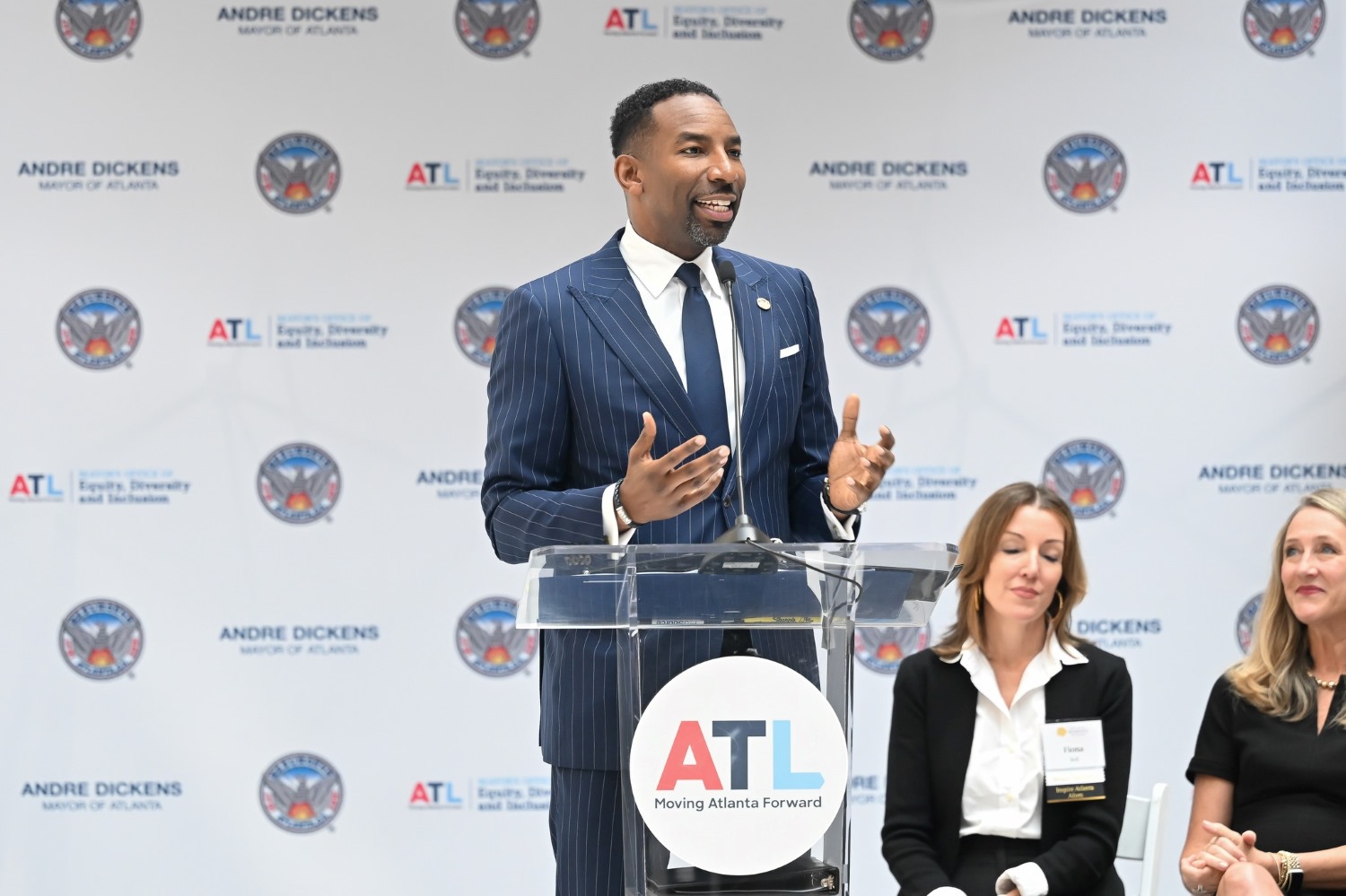
Since disparity studies began in 1989, municipalities across the country have annually hired consulting firms to assess whether they have been awarding contracts to minority- and women-owned businesses at unfair rates.
Look at the recent studies, we can see that disparity still exists.
Even the SBA itself, in its 2020 report, confirmed that approximately 91% of the $560 billion worth of government contracts that year went to non-minority-owned businesses or corporations, displaying how much of a challenge it is for small businesses to secure government contracts based on the landscape we as minority-owned small businesses face.
That’s the statistics from the SBA, how about the other studies?
Cuyahoga County – Long-Standing Discrimination
One recent example of a disparity study comes from Cuyahoga County, Ohio. In October 2020, an Atlanta-based firm commissioned by the county released its more than 200-page disparity study.
Among other things, the study found that of $1.1 billion in contracts, only about $51.5 million, or 4.62%, was awarded to minority- or woman-owned businesses as primary contractors. White female-owned firms accounted for 4.03% of that figure; minority business enterprises accounted for .59% of awards, according to the study.
The study, conducted by Atlanta-based consultant Griffin & Strong P.C. and released Wednesday, concluded that “discrimination still exists” in the awarding of county contracts.
It echoed findings from a separate 2014 disparity study conducted by the county that also concluded “long-standing discrimination did exist” in the awarding of contracts.
Black-Owned Businesses Struggle for Access to Boston Contracts
A study commissioned by the City of Boston found that less than 0.5% of prime contracts awarded to private businesses over a five-year period went to Black-owned companies, as reported by the GBH News Center for Investigative Reporting. Although the city has not yet publicly released the study, many officials have reviewed the report, which was conducted by BBC Research & Consulting for approximately $1 million.
The study examined over 47,000 contracts worth nearly $2.2 billion awarded between 2014 and 2019, revealing that Black-owned businesses, despite being well-represented in the area, received only 0.4% of prime contracts and 1.6% of subcontracts. Black-owned businesses made up 3.5% of the local enterprises qualified for prime contracts and 5.6% available for subcontracts. Hispanic-owned businesses were similarly underrepresented, receiving 0.8% of prime contracts and 2.4% of subcontracts.
The report also highlighted broader challenges for minority-owned businesses across Massachusetts. Governor Charlie Baker’s administration has faced similar calls to increase spending with minority-owned enterprises, as state spending with these businesses declined by $135 million over two decades.
A 2017 study by the State Division of Capital Asset Management and Maintenance (DCAMM) showed that only 1% of state design and construction contracts from 2010 to 2015 went to African-American contractors, down from 4% in the previous study.
San Francisco – Asian Indian and Asian Pacific Businesses were Underused
In 2020, the long-awaited release of Oakland’s Race and Gender Disparity Study, conducted by Mason Tillman Associates, revealed significant disparities in city contract awards for African American businesses.
The study, covering data from 2001 to 2016, showed that African American businesses lost $42.9 million in contracts they were expected to win under the Local/Small Local Business Enterprise (L/SLBE) Program, despite its race and gender-neutral goals. Asian Indian and Asian Pacific businesses were also underused, though the disparity was not statistically significant.
Cathy Adams, president of the Oakland African American Chamber of Commerce, expressed relief at the study’s release after months of delays.
New Jersey – The Dominance of White Man in the Field
In January 2024, Governor Phil Murphy and Treasurer Elizabeth Maher Muoio announced the release of a statewide disparity study focused on public contracting opportunities for Minority and Women-Owned Business Enterprises (MWBEs) in New Jersey. The study, conducted by Mason Tillman and Associates (MTA) and overseen by the Office of Diversity and Inclusion (ODI), analyzed over 1.2 million records and 240,000 contracts awarded between July 1, 2015, and June 30, 2020, from more than 60 state agencies, authorities, and educational institutions.
The study, commissioned in 2020, sought to assess the participation of MWBEs in state contracts and propose solutions to create a fairer contracting environment. MTA conducted community outreach with minority, women, service-disabled veteran-owned, and small businesses, holding six virtual meetings attended by over 500 businesses.
Key findings revealed significant disparities in contracts awarded to businesses owned by Black, Asian, and Hispanic Americans in construction, professional services, and goods. Similarly, white women-owned businesses were underrepresented in various prime contracts. In contrast, businesses owned by non-minority males were overrepresented in all areas.
The Way Out for Disparity in Government Procurement
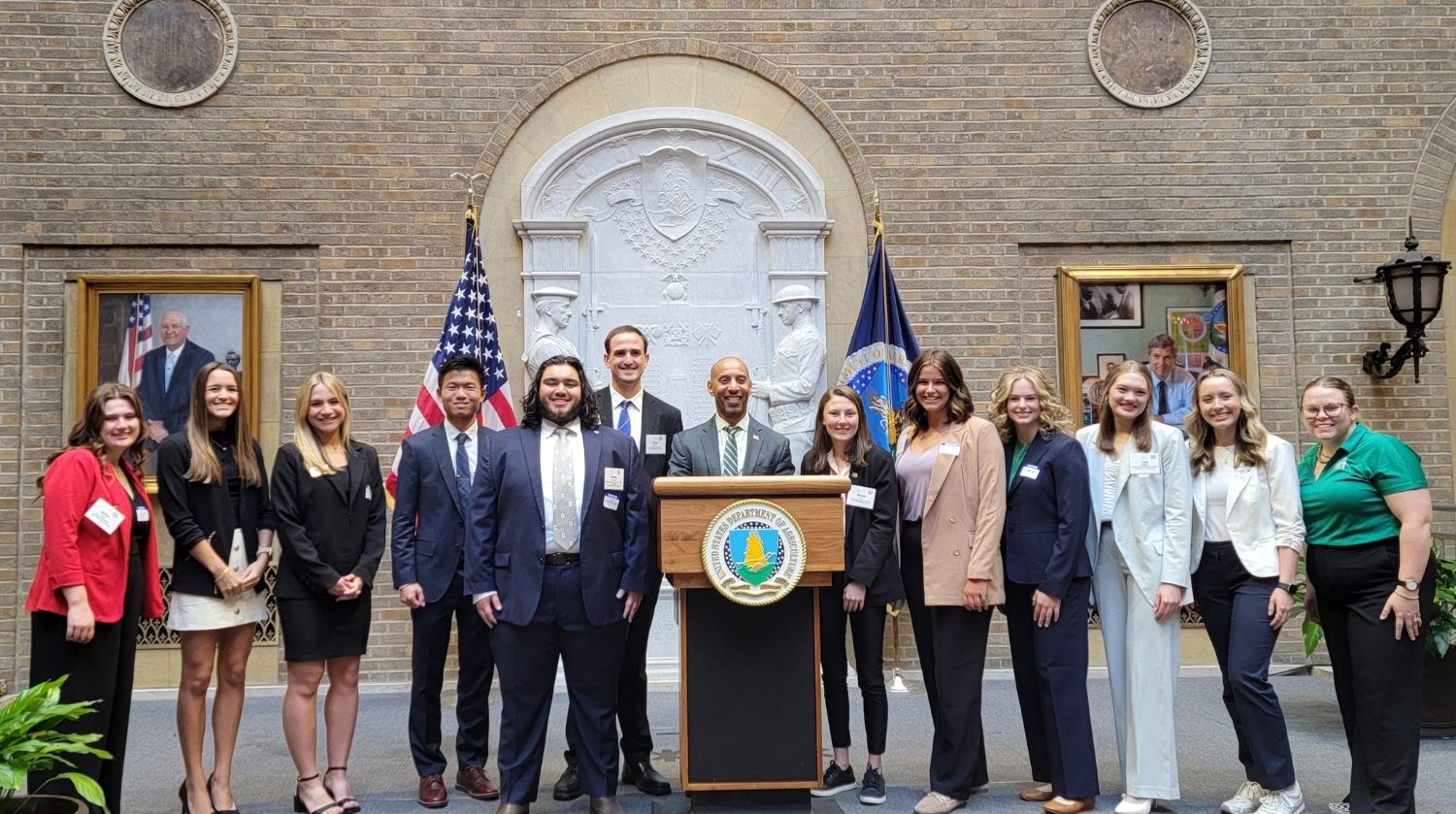
In the report Removing Barriers to Participation in Local and State Government Procurement and Contracting for Entrepreneurs of Color, based on interviews with procurement leaders, legal experts, and business owners, the report highlights several key strategies to eliminate barriers for MBEs.
These include strengthening outreach efforts and providing technical assistance to help small businesses navigate the complexities of the contracting process. Additionally, the development of robust data systems to track and monitor MBE participation and ensuring timely payment to vendors are crucial for increasing access and improving financial outcomes for MBEs.
The report also recommends that state and local governments consider unbundling large contracts to make them more accessible to smaller businesses, particularly in sectors where MBEs are prevalent. It suggests adopting race-neutral strategies such as proactive outreach, pre-bid information sessions, and personalized technical support for bid submissions, especially in legal contexts where race-conscious policies are restricted. These strategies can help increase participation even when race-based procurement practices are not permitted.
That what the report suggests municipalities to do in order to reduce the disparity. In fact, each city has their own way dealing with this problem. Let’s take a look.
Local Authority Efforts
Municipalities are actively pursuing a range of strategies to address disparities in government contracting and foster greater equity. Below are some of the most significant initiatives aimed at leveling the playing field for underrepresented businesses.
Los Angeles has established the Business Inclusion Program (BIP), which mandates city departments to involve minority-, women-, and small-business enterprises in their contracting processes. The program offers outreach, training, and support to assist these businesses in thriving.
In February 2021, Boston committed to creating a Supplier Diversity Program, following the completion of the city’s Disparity Study. As part of a $2 million investment in supplier diversity, Boston has formed a new Supplier Diversity Team.
This team, consisting of five full-time staff members in the Mayor’s Office of Economic Development’s Equity and Inclusion Unit, will lead efforts to implement inclusive procurement practices, oversee city contracts, provide technical support, certify businesses, and connect minority- and women-owned enterprises to current and upcoming contracting opportunities.
San Francisco has introduced the Local Business Enterprise (LBE) program to support small regional construction firms within the San Francisco Public Utilities Commission (SFPUC) water service area, which spans from Daly City to Hetch Hetchy.
The program offers eligible firms the chance to be certified by the General Services Agency’s Contract Monitoring Division, granting access to construction contracting opportunities on SFPUC-specific projects. It aims to encourage small and micro public works firms, as well as businesses in construction, material supply, equipment rental, trucking, architecture, engineering, and professional services—particularly those located in designated zip codes—to apply for certification.
In 2021, Cuyahoga County Executive Armond Budish announced four executive orders aimed at addressing racial and gender disparities in the county’s contracting procedures. These orders align with the recommendations put forth by the Citizens’ Advisory Council on Equity, which was established following the county’s 2020 declaration of racism as a public health crisis.
The executive orders focus on several key initiatives. First, they aim to increase the visibility of available contracts to minority contractors, ensuring that these businesses have better access to contracting opportunities. Second, the orders mandate the county’s Office of Procurement and Diversity to establish specific goals for the participation of minority-owned businesses in county contracts. Lastly, the county plans to expand its Small Business Enterprise program, which includes reserving certain bids, requests for proposals, and requests for qualifications exclusively for small businesses.
In response to the disparity problem, New Jersey legislators have advanced a comprehensive legislative package aimed at addressing racial and gender disparities in public procurement across the state.
The 12 bills approved by the Assembly’s community development and women’s affairs committee aim to tackle what Rev. Charles Boyer described as “the shameful reality of a structurally racist procurement system.” These initiatives honor the legacy of the late Sen. Ronald Rice, who championed diversity in state contracting.
Key provisions include the establishment of the “Minority and Women-Owned Businesses State Contractor Remedies Act,” which sets a goal of awarding at least 30% of state contracts to disadvantaged businesses, mandates outreach and training for these businesses, requires a study of procurement disparities every five years, and urges key authorities to prioritize minority and women-owned businesses in hiring and contracts.
Benefits of Being Certified
For small business owners from underrepresented demographics, obtaining certification can significantly enhance their prospects for sustainable growth and success. Special certification programs are available for women, minorities, LGBTQ+ community members, veterans, and economically disadvantaged entrepreneurs, offering exclusive networking opportunities, resources, and access to contracts.
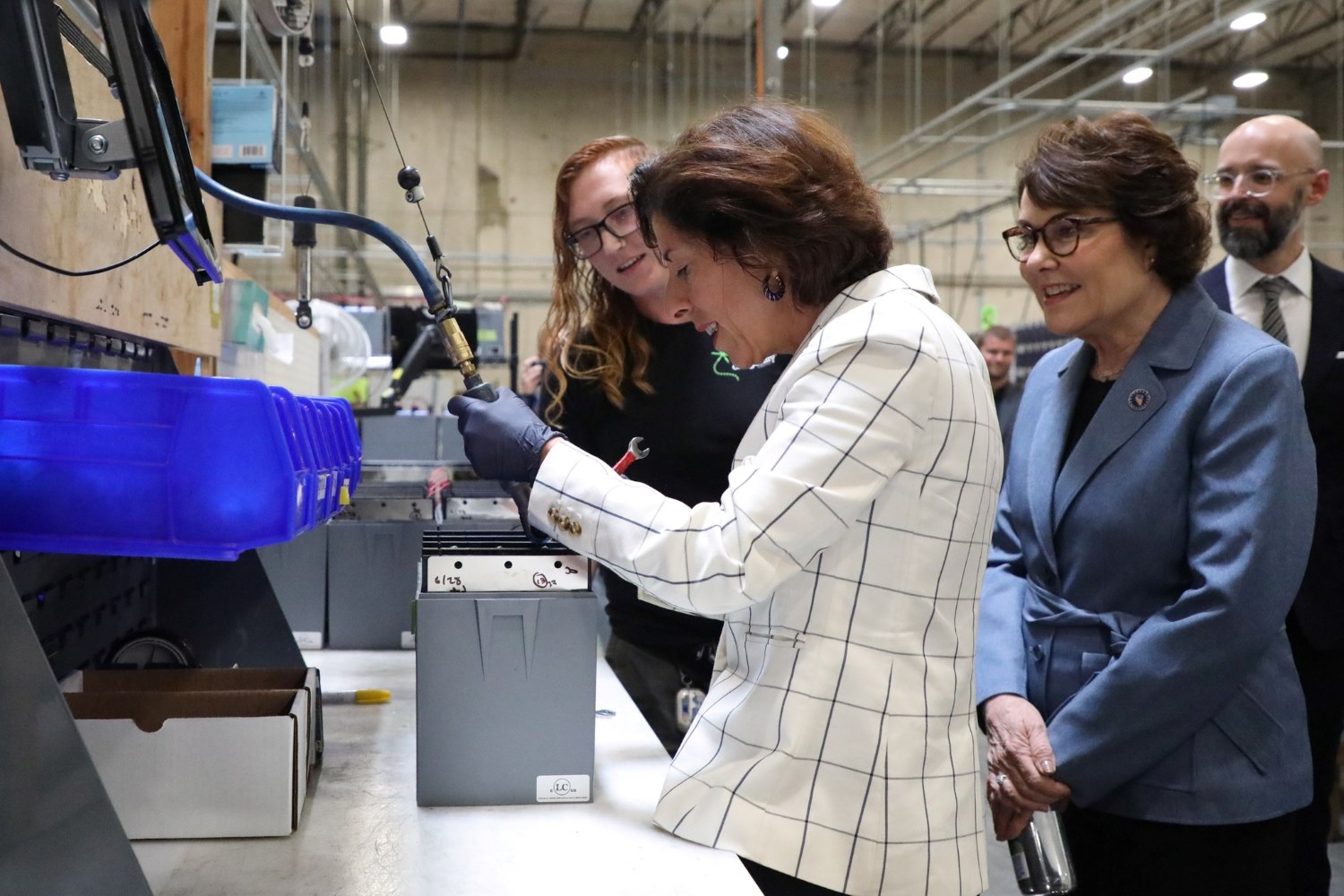
Certification not only opens doors to contracts but also fosters mentorship and financial support.
Entrepreneurs like Teresa Ging, who received assistance from organizations such as the Women’s Business Development Center, emphasize the importance of these resources in securing funding and breaking through barriers.
“They formulate a loan package that has your personal financial statements, your credit score, [your business plan], and they help you present it to three different banks,” Ging explained. “I got two out of the three loans.”
When she asked why she was declined by the third bank, the bank representative told her she was too young to open a business, and she didn’t have a secondary income.
“That was kind of my second moment of hitting the glass ceiling,” said Ging, who then asked to speak with the bank manager. “I [said] I was looking for a bank to help me open one Sugar Bliss or a hundred Sugar Blisses. And the very next day, I got the loan from that bank.”
Certification can also lead to valuable partnerships with corporations and government agencies, allowing businesses to connect with major players across various industries.

